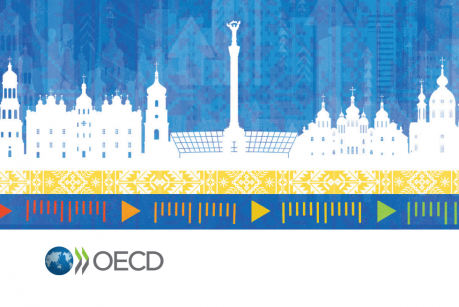OECD Published Report on Ukraine as Part of the 5th Monitoring Round

The OECD has released its final report following the fifth round of monitoring under the Istanbul Anti-Corruption Action Plan.
The Ukrainian Network of Integrity and Compliance (UNIC) contributed to the evaluation process by distributing the OECD questionnaire among companies, consolidating responses, and highlighting specific challenges that Ukrainian businesses face in the areas of integrity and corporate responsibility.
Key Findings of the Report
Despite the ongoing war, Ukraine has demonstrated significant progress in several areas: from the reinstatement of electronic asset declarations and strengthening the independence of anti-corruption institutions to reforming corporate liability legislation. At the same time, the report underscores that these achievements remain fragile and require systemic institutionalization.
Business Integrity: Progress and Gaps
The OECD highlighted recent amendments to the Law on Joint-Stock Companies, which strengthen the role of supervisory boards in overseeing risk management and anti-corruption controls. Large companies are increasingly adopting corruption risk management policies, state-owned enterprises are developing anti-corruption programs, and strategic SOEs such as Naftogaz, Ukrzaliznytsia, and Ukrenergo are steadily moving toward integrating international standards.
However, several challenges remain:
- Inconsistent practices: SMEs often lack resources to build effective compliance systems.
- Limited transparency: wartime restrictions have closed parts of state registries, complicating counterparty due diligence.
- Risk of reduced prioritization: in the draft Anti-Corruption Strategy, Business Integrity and private sector engagement are dispersed across sections rather than highlighted as a dedicated priority, which may reduce attention from the NACP and government bodies.
Corporate Liability: Breakthroughs and Limitations
In December 2024, amendments to the Criminal and Criminal Procedure Codes introduced corporate criminal liability — regardless of individual guilt. This milestone has been pivotal for Ukraine’s status as a prospective OECD member (2023) and for its application to join the OECD Anti-Bribery Convention and Working Group (2025).
However, the reform currently applies only to cases of bribery of foreign officials, leaving domestic corruption crimes outside its scope. Enforcement remains limited — with only one case of corporate liability recorded. Reasons include:
- absence of established procedures;
- concerns over potential misuse;
- lack of incentives for businesses to cooperate with law enforcement.
The OECD emphasizes that to align with international standards, Ukraine must expand corporate liability to cover domestic corruption, ensure effective sanctions, and simultaneously introduce safeguards for companies that genuinely implement compliance.
UNIC’s Contribution
UNIC’s participation in the monitoring allowed for a consolidated representation of the business community’s views. The network advocated for three key priorities:
- Ensuring that Business Integrity is elevated into a standalone section in the new Anti-Corruption Strategy.
- Developing practical compliance tools tailored to SMEs.
- Establishing a balanced system of corporate liability that combines effective sanctions with guarantees for bona fide businesses.
The OECD’s fifth monitoring round recognized Ukraine’s important progress but also outlined the scale of remaining challenges. For businesses, this translates into stricter requirements — but also new opportunities, as integrity and transparency are increasingly becoming sources of competitive advantage.
UNIC will continue working to ensure that the culture of business integrity becomes not just a declarative principle, but a practical standard for doing business in Ukraine.




